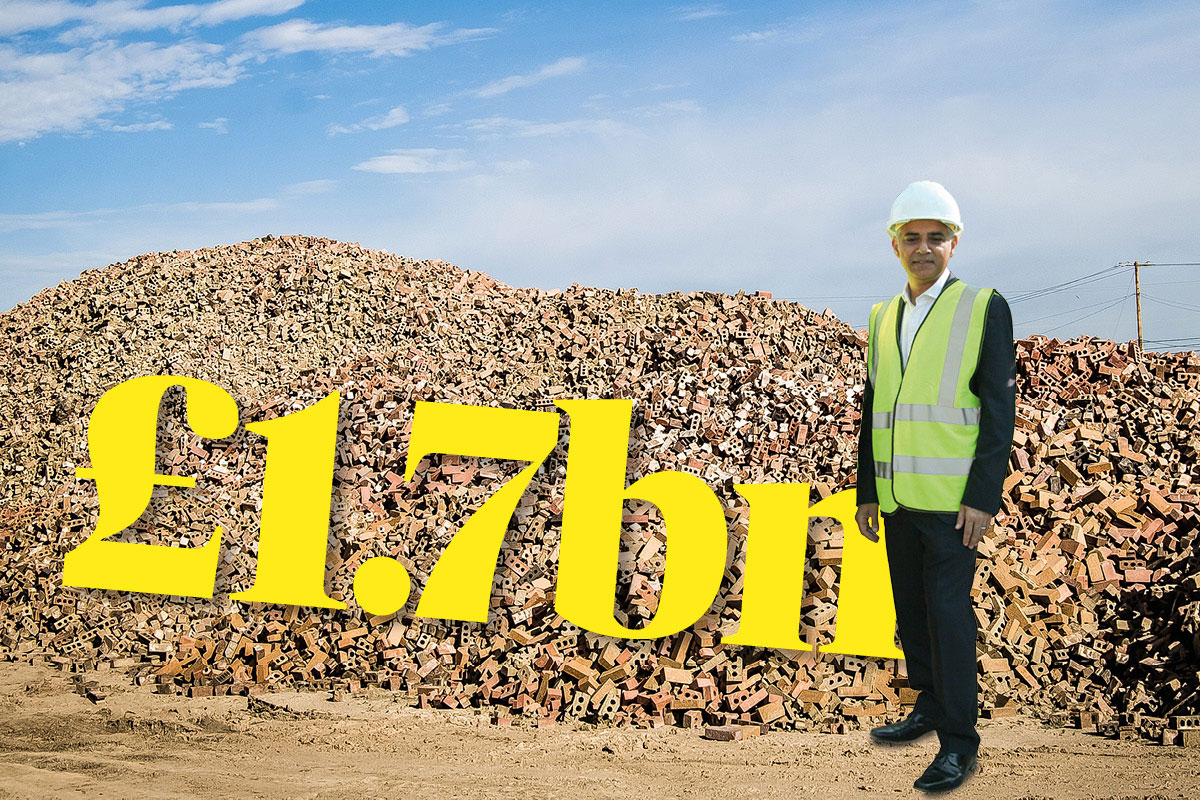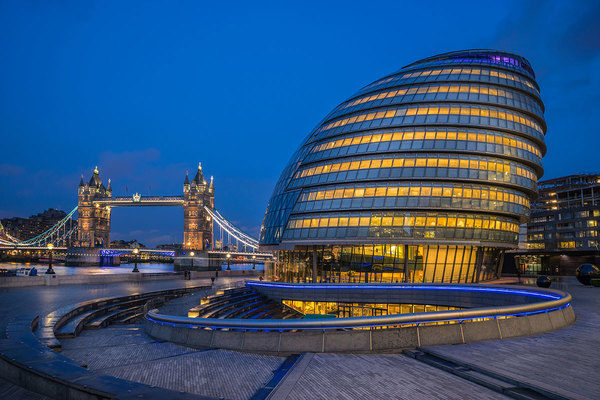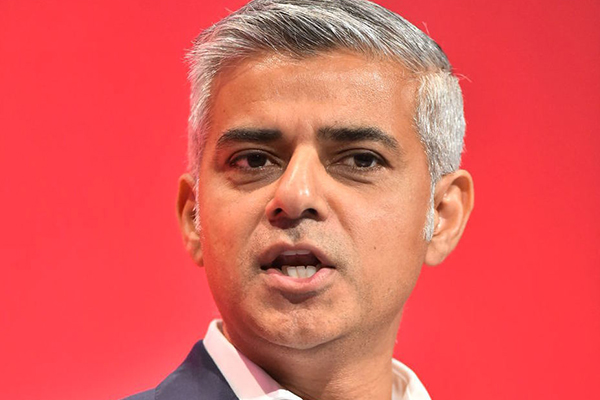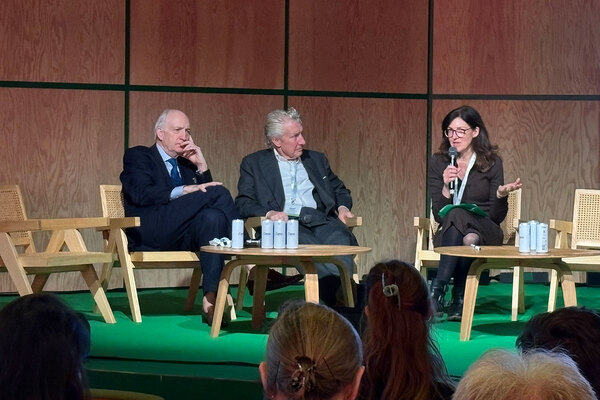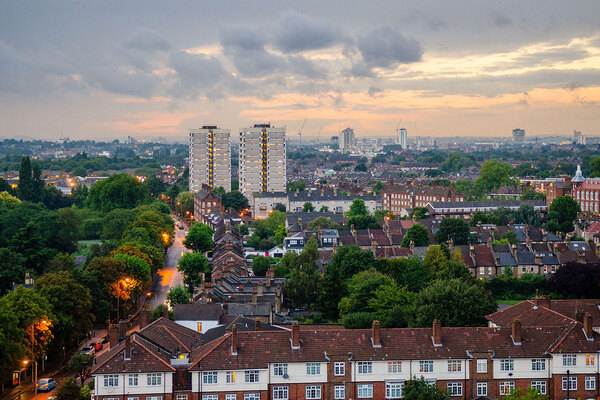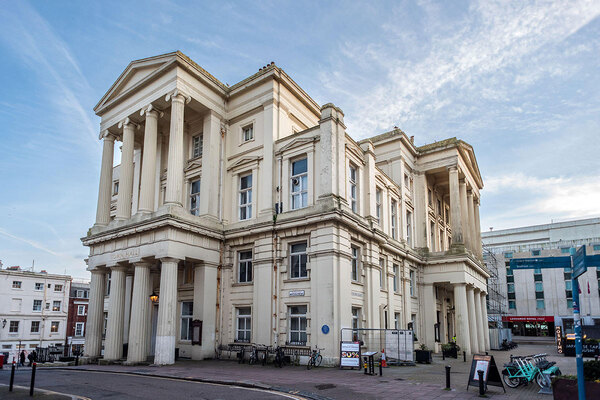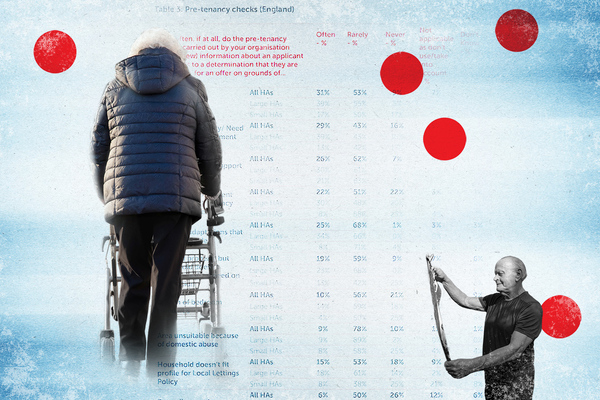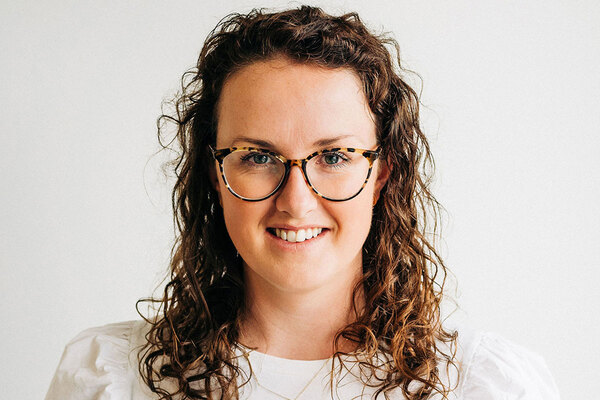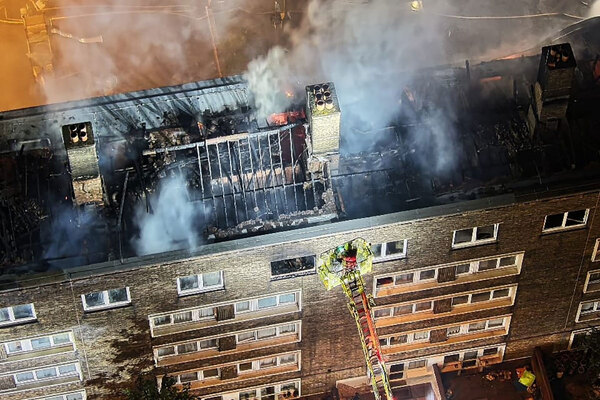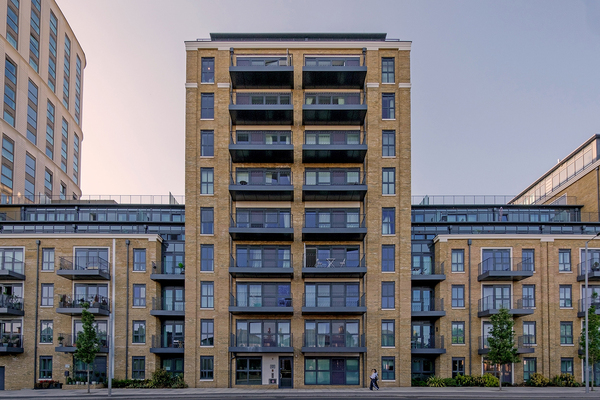A focus on Sadiq Khan’s funding programme
Three years on from shunning the first round of Greater London Authority grant funding, housing associations can’t get enough of Sadiq Khan’s latest programme. Luke Barratt finds out why. Photography by Rex Features
“We don’t want to be creating tenancies that are doomed to fail.”
So said an unnamed chief executive of a large London housing association almost exactly three years ago, amid an unusually acrimonious stand-off with City Hall.
Housing providers in London were not happy with the grant on offer from then-mayor Boris Johnson – for products at 50% and 80% of market rents, in many cases tied to nominations agreements for local authorities to place tenants from housing waiting lists in the properties which they would be unable to afford.
Low grant rates and other terms and conditions – including a ‘drop dead date’ forcing them to complete by the end of the programme or pay back the cash – were also unpopular. With Mr Johnson refusing to budge, social landlords voted with their feet. Just £400m of £1.25bn was handed out in the first tranche of allocations to build 18,000 homes, forcing City Hall emissaries into desperate phone calls to ask large providers to up their bids.
“The previous allocation was the low watermark on take-up of grant funding,” Paul Hackett, chair of the G15 group of London’s largest housing associations, tells Inside Housing.
Change of appetite
What a difference, then, three years has made. Last week, Sadiq Khan allocated £1.7bn to councils and housing associations for 50,000 affordable homes over the next four years, a little more than half of his affordable housing war chest of £3.15bn and 55% of the affordable homes he wants to fund in his first term. So why the change of appetite among London’s housing providers?
First of all, there is simply more cash on the table. Grants will be awarded at a rate of £60,000 per unit for homes let for a new low-rent product dubbed ‘London Affordable Rent’. This is almost three times higher than under post-2010 government programmes.
“We’re now seeing a renewed enthusiasm for grant funding from housing associations because the level of grant is at a more realistic level through different tenures,” says Mr Hackett.
With this extra cash, providers are able to offer rents that poorer tenants in London are better able to afford.
“I think housing associations also very much welcome the opportunity to build homes to cover different price points, so the inclusion of a lower-rented affordable London Affordable Rent product is very appealing to associations that see that as part of their social purpose,” Mr Hackett explains.
2014
£400m
The amount handed out in the first tranche of allocations under Boris Johnson’s mayorship
2017
£1.7bn
The allocation for 50,000 affordable homes over the next four years under Sadiq Khan’s mayorship
London Affordable Rent is based on the mayor’s benchmarks for affordability, which reflect the ‘target rent’ cap for social rent. While these benchmarks are considerably cheaper than the upper end of the previous regimes of ‘affordable rents’, they are also markedly higher than the average social rent in London for new lettings.
Depending on bedroom numbers, the benchmark is between 10% and 28% lower than regular ‘affordable rent’ in London, and between 10% and 43% higher than the average London social rent for new lettings, according to figures from the English Housing Survey. Nonetheless, it is a move in the right direction and a move far enough to entice providers to get involved.
More flexibility
Another crucial new feature of the mayor’s programme is the role of strategic partnerships, struck with L&Q, Hyde, Genesis, Clarion, Network Homes, Notting Hill Housing, Optivo and Peabody. The Greater London Authority (GLA) says these will deliver 38,500 homes, 77% of the total.
James Murray, deputy mayor for housing, says: “The fact the strategic partnerships have been so successful is a real endorsement of the approach that we’re taking where we’re being ambitious and supporting associations which are delivering that ambition.”
Associations involved in strategic partnerships are required to provide a higher proportion of affordable housing across their portfolios than associations receiving regular grants – 60% versus 50%. In exchange, they receive more flexibility on when they can draw down grants.
Helen Evans, chief executive of Network, tells Inside Housing: “It’s great that the GLA has been able to restructure the way that they’re organising the programme to pay grants at the start rather than at completion. The GLA has taken a very collaborative approach.”
The new-found bonhomie among housing associations is also down to a more flexible approach to the programme per se. As well as the London Affordable Rent products, 32,000 of the homes will be for either shared ownership or the product announced by the mayor last year – London Living Rent.
It will be up to associations to decide which to offer, based on the market at the time of completion and local circumstances.
Mr Hackett, who is also chief executive of housing association Optivo, said this feature was “incredibly important”.
Indeed, it was a major call by the sector on central government as it sought bids for its last shared ownership-dominated grant programme last year amid market uncertainty over Brexit.
There are still questions ahead – and the perennial one for those seeking to solve London’s housing crisis relates to land, which is still to be found for around half of the 50,000 homes.
Mr Murray says: “The targets we’ve set are ambitious. We’ll have to rely on having this more strategic relationship with housing associations where they can use the funding more flexibly and where we help them with land acquisition and with bringing together larger projects.”
Overall, though, this more congenial approach is currently serving both sides well. If the ambitious targets set out by Mr Khan are to be hit, continuing to work in tandem will be vital.
The initial funding allocations
|
Organisation name |
Homes |
GLA funding allocation |
|
A2 Dominion |
1,870 |
£80,776,000 |
|
Almshouse Consortium |
86 |
£5,160,000 |
|
Brick by Brick (Croydon Council) |
199 |
£5,572,000 |
|
Catalyst Housing |
1,216 |
£41,024,000 |
|
City of London |
244 |
£14,640,000 |
|
Clarion Housing Group |
5,000 |
£168,300,000 |
|
Estuary Housing Association |
76 |
£2,072,000 |
|
Evolve Housing & Support |
49 |
£2,940,000 |
|
Genesis Housing Association |
2,049 |
£70,712,000 |
|
Grainger Trust |
34 |
£0 |
|
Hexagon Housing Association |
223 |
£8,548,000 |
|
Home Group |
45 |
£1,164,426 |
|
Hyde Housing Association |
3,000 |
£102,000,000 |
|
Islington & Shoreditch Housing Association |
124 |
£6,374,200 |
|
Lambeth & Southwark Housing Association |
4 |
£240,000 |
|
L&Q |
11,610 |
£394,740,000 |
|
London Borough of Enfield |
148 |
£5,345,000 |
|
London Borough of Harrow |
317 |
£12,620,000 |
|
London Borough of Havering |
610 |
£30,296,000 |
|
London Borough of Hounslow |
174 |
£9,004,000 |
|
London Borough of Lambeth |
912 |
£54,720,000 |
|
London Borough of Wandsworth |
71 |
£3,972,000 |
|
Look Ahead Care and Support |
38 |
£2,400,000 |
|
Metropolitan Housing Trust |
704 |
£18,376,000 |
|
Moat |
50 |
£0 |
|
Network Homes |
1,752 |
£45,756,000 |
|
Newlon Housing Trust |
200 |
£5,600,000 |
|
Notting Hill Housing Trust |
5,321 |
£176,386,962 |
|
Octavia Housing |
833 |
£31,435,500 |
|
One Housing Group |
686 |
£10,184,000 |
|
Optivo |
2,600 |
£88,400,000 |
|
Orbit Group |
347 |
£14,676,000 |
|
Paradigm Housing Group |
134 |
£4,008,000 |
|
Paragon Community Housing Group |
288 |
£1,265,600 |
|
Peabody Trust |
6,000 |
£220,973,768 |
|
Poplar Harca |
144 |
£6,016,000 |
|
Richmond Housing Partnership |
475 |
£17,748,000 |
|
Sanctuary Affordable Housing |
11 |
£308,000 |
|
Southern Housing Group |
601 |
£20,338,000 |
|
Southwark Council |
201 |
£12,060,000 |
|
Swan Housing Association |
127 |
£5,092,000 |
|
Thames Valley Housing Association |
418 |
£8,808,000 |
|
Wandle Housing Association |
307 |
£7,472,000 |
|
YMCA Thames Gateway |
100 |
£6,000,000 |
Related stories
